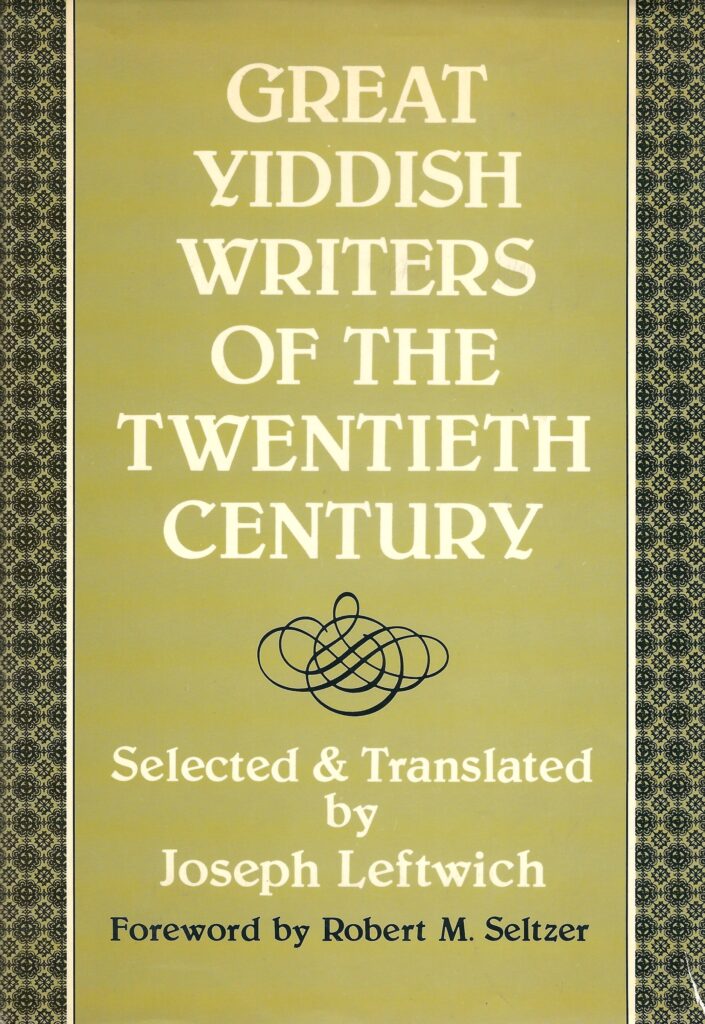Joseph Leftwich, Great Yiddish Writers of the Twentieth Century
The writer wakens you, the reader, he rouses you out of your indifference, he shows you the things you had not seen before, he makes your imagination work, he gives you wings, and you see and you feel.
—Baal Machshoves
I felt that when one writes about millions of people it weakens the tragedy. But if you tell the story of one individual, of one family, of one child, and you succeed in conveying their sufferings, their emotions, their state of mind, it gets across.
—Rachmil Bryks
I make my dear dead ones live again by keeping their language alive.
—Mendel Mann
I bought this tome over twenty years ago, and finally just finished it. Having recently read Yiddish poetry in translation, I was energized by this introduction to the mostly secular literary writers.
Some Perennial Themes—
What does it mean to be Jewish?
How to move forward after the Khurban?
Centrality of Bible and Need for a Second Bible
Traumatic/Guilty Jewish-Christian Relations
Place of Jesus in Jewish History
The Religious and the Secular
The Relevance of the Prophetic
Talkativeness
The Life and Death of Yiddish Language and Literature
Ten Best Essays Worth Rereading—
Sholem Asch, Triumphal March
Rachmil Bryks, How To Write Khurban Literature
Simon Dubnov, From Jargon to Yiddish
Jacob Glastein, In Literary Criticism
Chaim Jitlovsky, What is Secular Jewish Culture?
Mendel Mann, The Light of Yiddish Is Not Quenched
Jacob Maitlis, Khurban and Redemption in Prophetic Vision
I. M. Neiman, Heine
Joshua Rappaport, Heine’s Jewish Tragedy
Melech Ravitch, Why Not Canonize a Second Book of Books?
Robert Seltzer’s informative Foreword
Aaron Zeitlin, Isaac Katznelson
Fifteen Writers To Explore—
Sholem Asch
Rachmil Bryks
Simon Dubnov
Jacob Glatstein
Chaim Grade
Itzik Manger
Mendel Mann
IL Peretz
Melech Ravitch
Rudolf Rocker
Abraham Sutzkever
I. J. Trunk
Aaron Zeitlin
Hillel Zeitlin
— Saturday 4 June 2016
